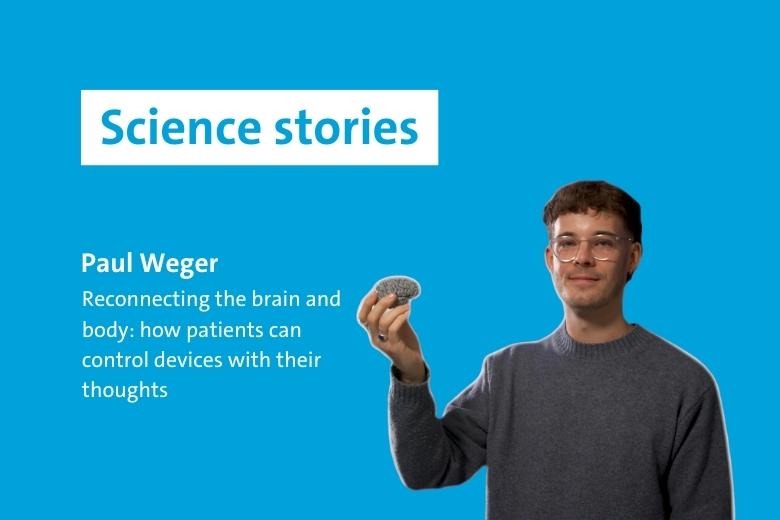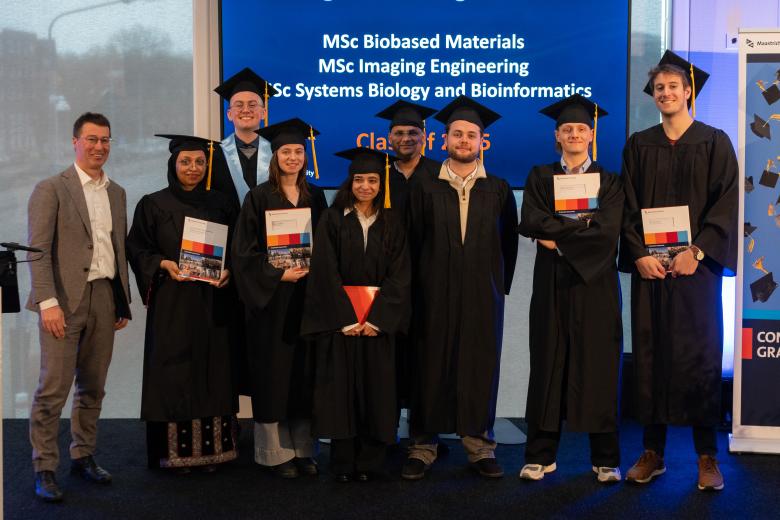Digital twins of the heart: filling in the missing puzzle pieces
At the Faculty of Health, Medicine and Life Sciences, we perform a lot of research. In our Science Stories, our researchers explain their work and the tools they use to perform their research for FHML.
In the Netherlands, approximately 1.7 million people suffer from cardiovascular diseases. By mapping the pumping function of the heart in detail, researchers hope to better tailor care to the patient in the future. Dr. Nick van Osta researches this by creating a digital twin of the heart.
In this video, he explains how a digital heart works, how it fills in the missing puzzle pieces in heart disease diagnosis and treatment and how it ultimately could be used to provide personalized care.
More Science Stories? Watch how we can use virtual lungs to navigate the airways.
Also read
-
Reconnecting the brain and body: how to control devices with your thoughts
Can you control a robotic arm with your thoughts? Paul Weger (MHeNs) studies this to give back independence to patients with neurological conditions.
-
Green school playgrounds boost concentration and wellbeing
Children at schools with green playgrounds are better able to concentrate and display more social behaviour. This is the conclusion of a follow-up study within the long-running project The Healthy Primary School of the Future .
-
Ron Heeren appointed fellow of the Netherlands Academy of Engineering
Professor Ron Heeren, distinguished university professor at Maastricht University (UM) and director of the Maastricht MultiModal Molecular Imaging Institute (M4i), was appointed as a fellow of the Netherlands Academy of Engineering (NAE) on Thursday 11 December.